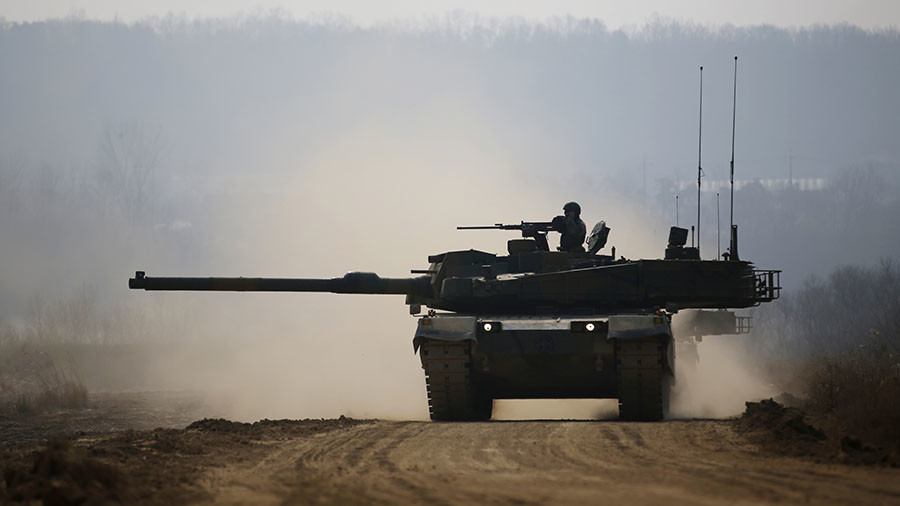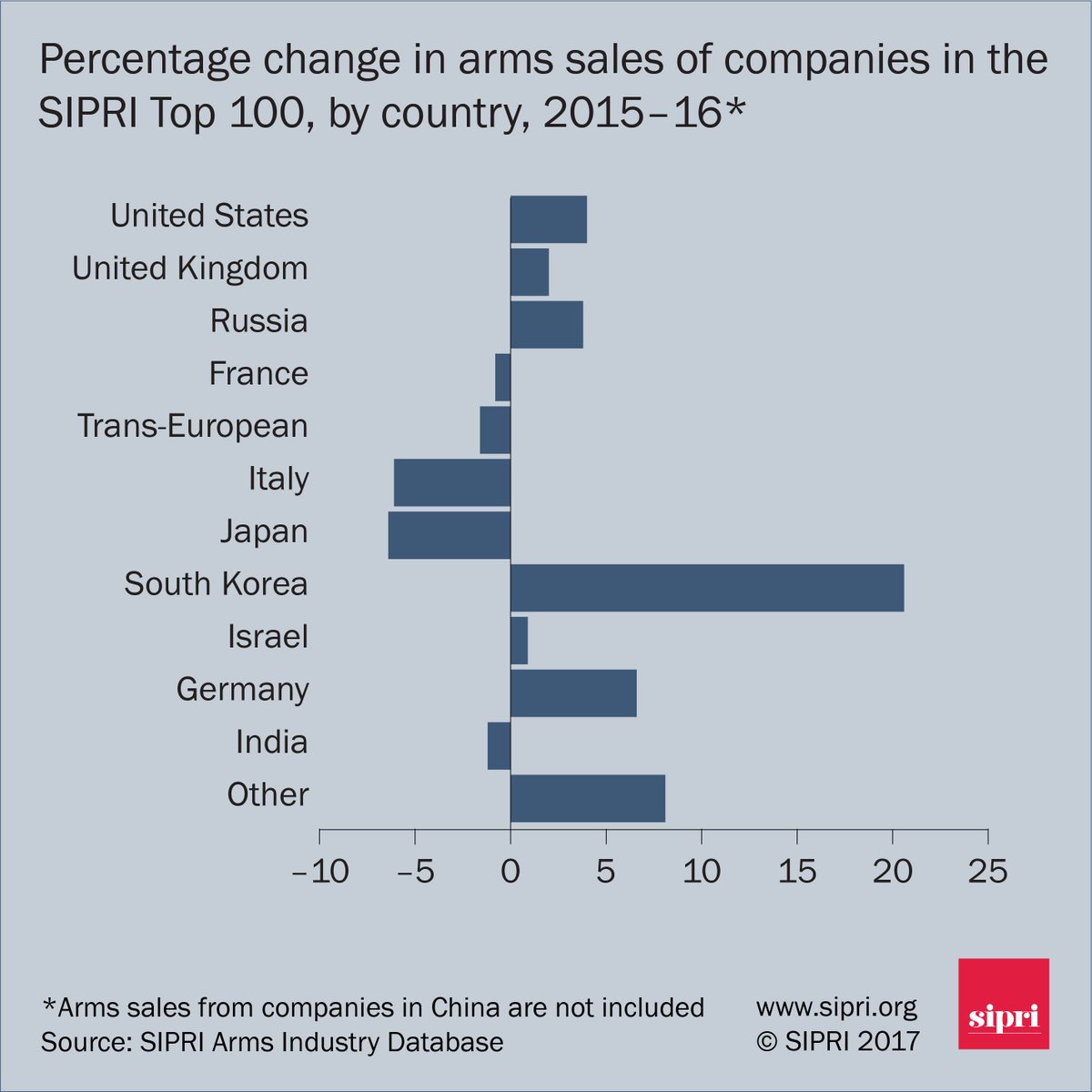Russia Rebukes US For Sowing "Regional Instability" As Military Drills Begin
11 December, 2017
The latest round of military drills involving the US, Japan and South Korea began their latest set of tracking drills on Monday, DW reported, citing sources in the South Korean military.
The drills – which are meant for "practicing tracking an object and sharing information on it among the three countries” - were being held in waters off the coast of Japan, according to Japan's Defense Minister Itsunori Onodera.
The US and its regional allies are stepping up their military drills in response to North Korea’s decision to test-launch the Hwasong-15, a new ICBM that US intelligence believes has the capacity to strike Washington, DC, as well as nearly any other part of the US – though the degree of accuracy remains questionable.
In response to drills held last week, North Korea warned that it is “ready for nuclear war” with the US. Though its threats have long rung hollow, US, South Korean and Japanese intelligence officials say that the North might soon attain the ability to load a nuclear warhead on its newest ICBM, which would enable it to launch a nuclear strike – or possibly an equally devastating EMP attack.
The exercises are the sixth since June 2016. Two US ships and one each from Japan and South Korea are involved. Meanwhile, the US’s Terminal High Altitude Area Defense (THAAD) has been deployed in South Korea, infuriating Chinese leaders, who claim there’s little distinction between a missile-defense system and a missile launcher. According to DW, Beijing also worries that THAAD’s radar can peer deep into Chinese territory, compromising its own security.
Following the North's November test, the US warned Pyongyang that its leadership would be "utterly destroyed" if war erupted. Since then, the Pentagon has staged several shows of force after North Korean military tests.
The US has been pressuring China and other countries to cut diplomatic and trade relations with the North - part of an international effort to squeeze Pyongyang by cutting off cash flows received from its illegal businesses, which are widely believed to be funding its weapons program.
Unfortunately, the US’s efforts have apparently done little to curb trade with the North. As we pointed out yesterday, a new report from the Institute for Science and International Security has found that 49 countries violated sanctions on North Korea to varying degrees between March 2014 and September 2017.
As it, too, steps up pressure on its neighbor, South Korea announced Sunday that it would impose new sanctions on 20 institutions and a dozen individuals in North Korea, barring any financial transactions between them and South Koreans.
"This unilateral sanction will prevent illegal funds flowing to North Korea and contribute to reinforce international communities' sanctions against North Korea," South Korea's Finance Ministry said in a statement.
The US has insisted on continuing with its provocative military drills despite widespread condemnation from the international community. A United Nations envoy warned of the grave risk of a miscalculation that results in nuclear annihilation, and urged Pyongyang to keep the channels of communication open after a rare visit to the isolated state last week.
Meanwhile, a Russian military general on Monday noted that the exercises only raise hysteria and create more instability in the region, according to Reuters.
Russian Chief of the General Staff of the Armed Forces General Valery Gerasimov, issued his warning in Tokyo as the United States, Japan and South Korea began a two-day exercise to practice tracking missiles amid rising tension over North Korea’s weapons programs.
General Valery Gerasimov
“Carrying out military training in regions surrounding North Korea will only heighten hysteria and make the situation unstable,” Gerasimov said at the beginning of a meeting with Japanese Minister of Defense Itsunori Onodera.
Following last week’s exercises, North Korea warned that the outbreak of war, at this point, is “an established fact”.

Korea's arms sales jump 20% amid Pyongyang threats – study

RT,
11
December, 2017
South
Korea boosted its arms sales by more than 20 percent last year and
has ambitions to become a major weapons exporter, according to a new
study. It comes amid frequent ballistic missile tests by arch rival,
North Korea.
Research
by the Stockholm International Peace Research Institute (SIPRI),
released Monday, studied the sales of arms and military services by
the world's largest arms-producing and military service companies in
2016. It found that South Korea dominated the "emerging
producers" category.
#SouthKorean companies in the @SIPRIorg #Top100 arms producing and military services companies increased their arms sales by 20.6% to $8.4 bn in 2016: http://bit.ly/2iIQFwx
#SIPRIFacts
"The
trend in this category for 2016 is dominated by the 20.6 percent
overall increase in the arms sales of South Korean companies, with
total sales amounting to 8.4 billion," SIPRI wrote in a release.
Other members of that category were Brazil, India, and Turkey.
SIPRI
Senior Researcher Siemon Wezeman noted that "continuing and
rising threat perceptions" are driving Seoul to acquire more
military equipment. Senior researcher Pieter D. Wezeman told AFP the
"increasingly nuclear weapons capability in North Korea"
has led to "major investments" in the South.
Wezeman
said South Korea is "increasingly turning to its own arms
industry to supply its demand for weapons" and is "aiming
to realize its goal of becoming a major arms exporter." South
Korean arms exports reached $2.5 billion in 2016, compared to $253
million in 2006, according to official data.
Seven
South Korean arms manufacturers ranks among SIPRI's top 100 global
arms producers, including Korea Aerospace Industries (KAI). The firm
has developed a supersonic training hunter, the T-50 Golden Eagle,
alongside American arms giant, Lockheed Martin. South Korea's
missiles, howitzers, submarines, and warplanes are particularly
popular across Southeast Asia, Eastern Europe, and South America.
The
study comes amid heightened regional unease over North Korea's
nuclear and ballistic missile programs. In its latest test, Pyongyang
launched an intercontinental ballistic missile (ICBM) which it says
is capable of hitting the US mainland. Seoul responded Monday, adding
several North Korean banks, companies, groups, and individuals to its
sanctions list.
The
South also persists with joint military drills with the US, with the
two allies taking part in the annual Vigilant Ace exercise last week.
The “war games” predictably angered Pyongyang, which previously
ruled out negotiations with Washington over the joint exercises and
America's "hostile policy." Speaking to Reuters last month,
Pyongyang's ambassador to the UN, Han Tae Song, said "as long as
there are continued war games on our doorstep, then there will not be
negotiations."
Moscow
has also spoken out against joint military maneuvers between the US
and South Korea. Russian Foreign Minister, Sergey Lavrov, said,
following North Korea's latest launch, that joint exercises in the
region and Washington's rhetoric towards the North had resulted in
"provoking Pyongyang into taking some rash action" after
months of restraint.




No comments:
Post a Comment
Note: only a member of this blog may post a comment.